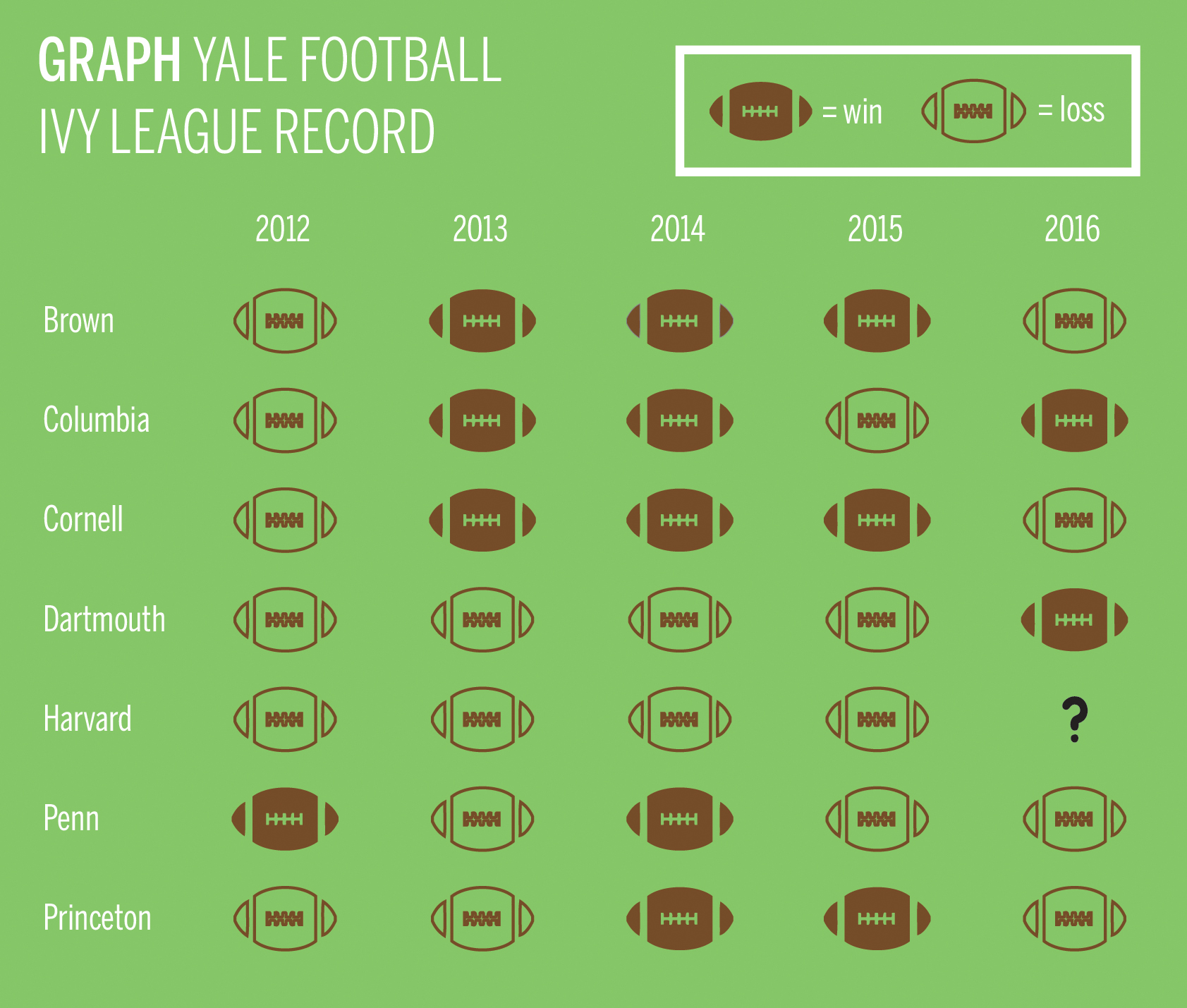
Heading into this weekend, the Yale Bulldogs have once again assumed the position as the underdogs in the storied Yale-Harvard football game. According to both the popular Sagarin ratings and our own Elo ratings, Yale has a less than a five percent chance to beat Harvard.
The widely used Sagarin ratings are complete for all Football Bowl Subdivision and Football Championship Subdivision football teams, including all eight Ivy League teams. A combination of three different score-based methods, the ratings rely heavily on margin of victory as an indicator of a team’s strength. After each team is given a rating, predicting the outcome of a matchup is quite simple: The expected difference in score is simply the difference in ratings for the two teams. The only modification is that the home team is also given an advantage of 2.7 points.
To supplement our use of the Sagarin ratings, we decided to create a ratings system of our own. Following the model of Nate Silver’s site FiveThirtyEight, we decided to use Elo ratings. Elo is a popular ratings system that first came into use for ranking chess players. It has now been applied to a diverse range of fields including professional football, basketball, soccer and even the dating app Tinder.
While the Elis are no longer in contention for the Ivy League title, they do have the chance to deny the Crimson a share of the conference championship. With Harvard, Princeton and Penn all currently tied at the top of the league, it seems likely that the title will once again be shared between at least two teams. All three teams need to beat their respective opponents to lay claim to a share of the title. According to the Elo model, there is above a 50 percent chance that all three teams share the title.
It is noteworthy that Princeton’s ranking is quite different from the two models. This deviation is most likely because Sagarin’s model is highly score-based. Therefore, Princeton’s rating has greatly benefited from many large-margin victories, including last week’s 31–3 win over Yale. Meanwhile, Harvard’s rating has suffered after a recent loss to Penn and a narrow overtime win over Princeton. However, according to both models, the Crimson has the best chance of all three teams to win a title because it has the highest predicted chance of winning this weekend, largely a result of Yale’s weak rating and Harvard’s home-field advantage. The Elo ratings only take into account Ivy League games, further accounting for certain differences between the models.
Looking back toward our predictions at the beginning of the Ivy League season, we can see how teams have lived up to expectations. In both preliminary models, Harvard was the favorite to take the league title, which seems a likely result. Interestingly, both models gave Penn a 12 percent chance of winning the league right before league games began. Princeton remains the largest surprise of the season, with both models giving them a less than 10 percent chance to get the title at the beginning of the year. Lastly, both preliminary models predicted Yale to have at least three Ivy League wins — an unlikely prospect — and Yale and Dartmouth remain the two most underperforming teams in the league. However, with a surprise win this Saturday, the early disappointment of this season would be forgotten in the wake of one great last result. Though a Bulldog victory is quite improbable according to our models, it remains a possible statistical fluctuation.
Contact Yale Undergraduate Sports Analytics Group at yalesportsanalytics@gmail.com .







